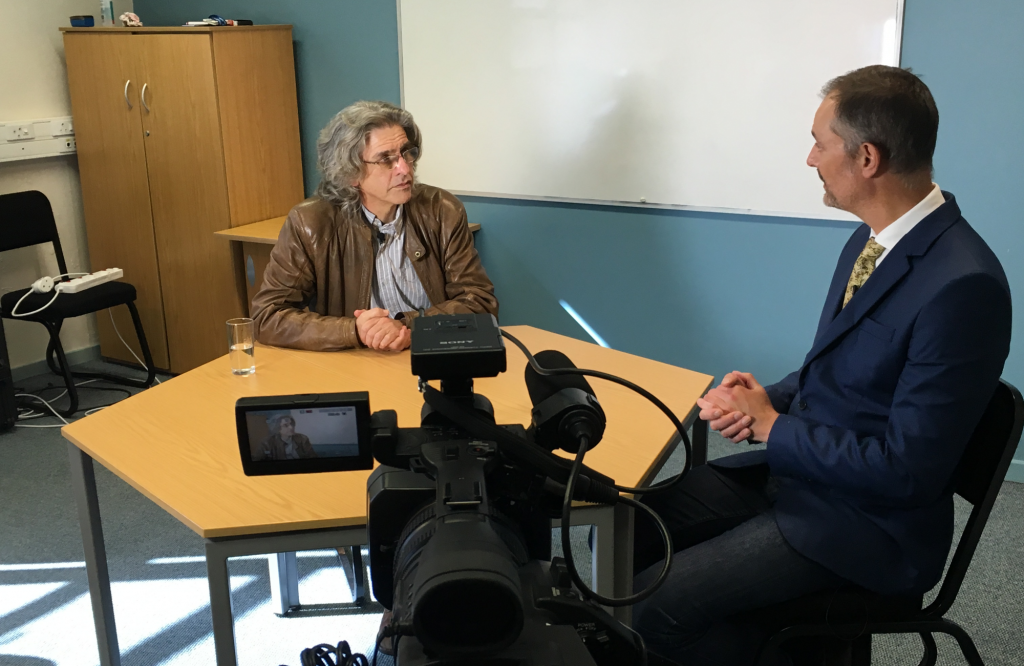
“We recently sat down with lead instructors, Dr Juan Klopper (department of surgery) and Dr Henri Laurie (department of mathematics and applied maths), of the Julia Scientific Programming MOOC on the Coursera platform. This 4 week course offers an introduction to the up and and coming programming language.”
“Julia is a language for the future”, words by Dr Juan Klopper, lead educator in the Julia Scientific Programming MOOC. Julia is a modern dynamic programming language designed to address the requirements of high-performance numerical and scientific computing. It is the latest installment in UCT’s suite of online courses and although the topic may seem quite niche, both educators on the MOOC, Dr Klopper and Dr Henri Laurie say their main motivation behind doing this course is to educate those without a scientific background in computing.
“Julia is a language for the future”
“If you want a language to reach everybody you need to teach it from the ground up, it needs to go way beyond [being used by] developers,” explained an impassioned Dr Klopper. “In my mind Julia solves a lot of scientific and computing problems but is being used mainly by people with a background in scientific computing.” It is characterized as a language that is fast, easy to use and easy to learn, making it accessible and suitable to learn as a first programming language.
Dr Laurie plans on teaching Julia to his first year undergraduate students at the University of Cape Town. My hope is “that people do the course and become enthusiastic about Julia as a programming language”. “I have high and low expectations. Low, that UCT students will be able to use the programme and use it well enough for the demands of the undergraduate assignments” and “at the high end of the expectation; that people do the course and become enthusiastic about Julia as a programming language.”
A successful outcome of the MOOC for Dr Klopper would be if one person were to say they understood Julia because of this course.
For Dr Laurie it has been an interesting experience making his first MOOC; creating the online course has been fun and enjoyable, he said. When looking at MOOCs and online courses in general he has been intrigued by how rapidly “self-education” has taken off, although he still believes that a university education with face-to-face education is important.
On the other hand Dr Klopper promotes the future of MOOCs in higher education, although “not as a replacement of it, that was a silly dream,” he said, making reference to the initial overblown hype in the popular press of MOOCs bringing about the end to campus teaching. “There are a lot of courses that lend themselves to this form of education. People are getting the opportunity to educate themselves.” “I believe, not that MOOCs are a disruption of education but the democratisation of it.” Technology today allows for the physical constraint of a university’s capacity to be “null and void”.
Elaborating on why the MOOC format was suitable for the Julia course he explained that as Julia is a new language there are not many open educational resources (OERs) available on it. Although it may be new, Julia has been ranked as one of the top 50 computer programming languages”.
Other than enjoying the process of making the MOOC Dr Klopper explained how he too learned new things, “it’s a whole other world compared to my day job and I didn’t mind taking after hours to get it done. I especially liked that I had to learn new things during the making of it and that I learnt from the people at CILT (Centre for Innovation in Learning and Teaching). What did I know about proper teaching, what did I know about assessment, that pushed me a lot. Learning those things from those experts, that was my personal gain”. He added that it may be helpful for academics at the university to engage more with educational experts to design better teaching programmes.
To learn more or to sign up for the course please visit https://www.coursera.org/learn/julia-programming
